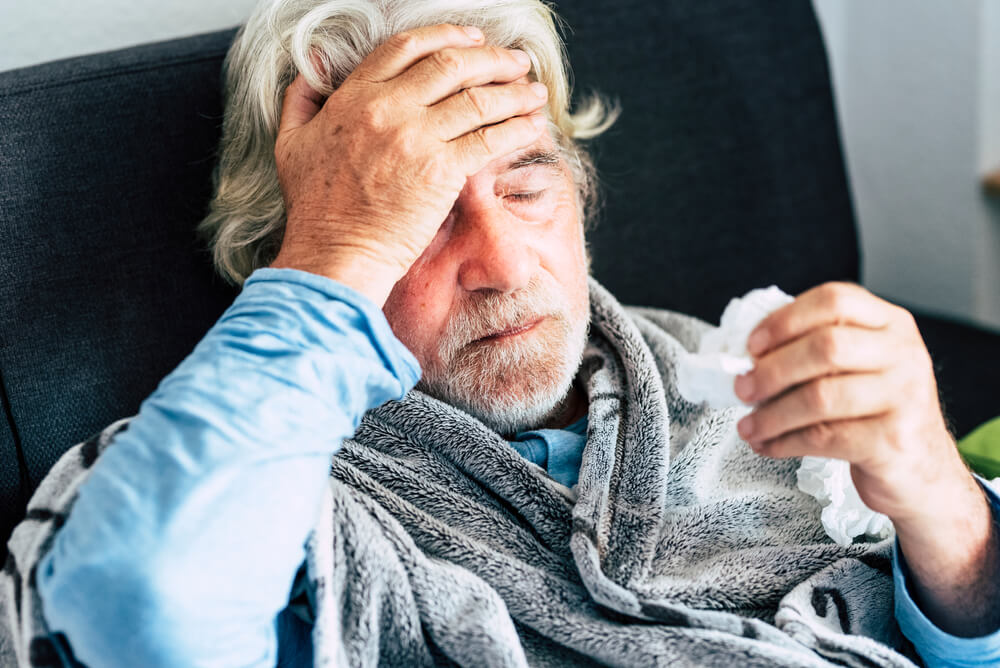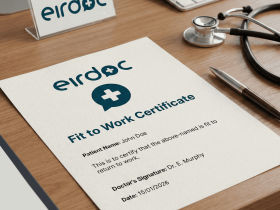
Introduction
Catching a cold occasionally is normal, but if you find yourself asking, ‘Why do I keep getting a cold?’ or feeling always sick with symptoms like coughs, sore throats, or infections, it could be due to a weak immune system or other underlying causes. Frequent illness in adults is more than just bad luck—it often signals that your immunity needs a boost, and getting guidance from an Online Doctor in Ireland is a great first step
When to See a Doctor for Repeated Sickness: Online Doctor Ireland Advice
A Weak Immune System and Its Role in Frequent Illness
Your immune system is your body’s defense army. If it’s weakened, you’ll be sick a lot and take longer to recover. Recognizing always sick symptoms can help you take steps to strengthen immunity naturally.
How Stress and Poor Sleep Increase Your Chances of Getting Sick
Chronic stress suppresses immunity, reducing your ability to fight infections. Inadequate sleep disrupts your body’s recovery processes, making it harder to stop getting sick.
The Impact of Poor Nutrition and Deficiencies on Immunity
Lacking key nutrients like vitamin C, vitamin D, zinc, and iron can lower your immune defenses. A poor diet filled with processed foods can also suppress your immune system.
Environmental and Lifestyle Factors Affecting Your Health
Exposure to pollution, smoking, and heavy drinking weakens your body’s natural defenses, contributing to common illnesses in Ireland and worldwide.
How to Boost Your Immune System Naturally: Effective Immunity Boosters
Key Vitamins and Minerals to Enhance Immune Health
- Vitamin C supports white blood cell production.
- Vitamin D regulates immune response.
- Zinc aids healing and reduces inflammation.
- Iron helps oxygen delivery essential for immunity.
The Power of a Balanced Diet
Eating whole foods, lean proteins, fruits, and vegetables provides the foundation for better immunity. Staying hydrated and supporting digestive health with fiber and probiotics also plays a crucial role.
Lifestyle Habits to Stop Getting Sick
- Sleep Hygiene: Aim for 7–9 hours and avoid screens before bedtime.
- Regular Exercise: Moderate exercise improves immune function.
- Limit Alcohol and Smoking: Both weaken immunity and slow recovery.
When to See a Doctor for Repeated Sickness: Online Doctor Ireland Advice
If you’re frequently ill compared to peers or your symptoms linger, it’s time to consult a doctor. When to see a doctor for repeated sickness is important to know—underlying health conditions like diabetes or thyroid issues might be the cause.
EIRdoc offers quick access to registered doctors through confidential online consultations, providing personalized advice on lifestyle, tests, or prescriptions to help you recover and build resilience
Conclusion: Take Control of Your Health and Immunity Today
Frequent sickness is not just bad luck. Understanding why I keep getting sick and learning how to boost your immune system naturally can improve your health and reduce the risk of common illnesses. Combine good nutrition, stress management, and sleep with professional support for the best results
With EIRdoc’s online GP service, getting expert advice and treatment in Ireland has never been easier. Take charge of your health and say goodbye to feeling sick a lot.
FAQs
- Is it normal to get sick multiple times a year?
A few colds a year can be normal, but constant illness could suggest a weakened immune system or an underlying issue. - Can stress really make me ill?
Yes. Chronic stress suppresses your immune system, making you more vulnerable to infection. - Which supplements actually help with immunity?
Vitamin C, vitamin D, and zinc are the most evidence-backed, but it is always best to discuss supplements with a doctor. - When should I see a GP about frequent illness?
If you get sick far more often than others, or if recovery takes longer than usual, it is time to book a consultation. - Can lifestyle changes alone improve my immunity?
For many people, yes—better sleep, nutrition, and stress management can make a big difference. But if problems persist, medical guidance is essential.






Leave a Reply